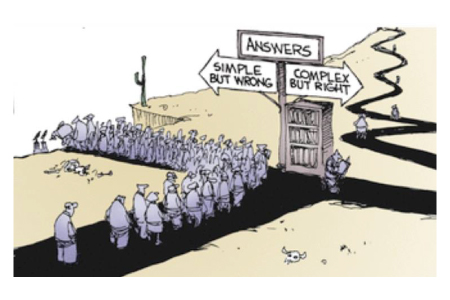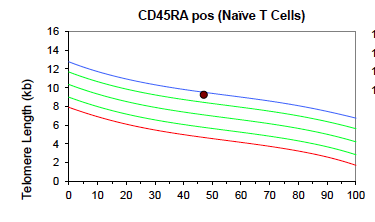
I received an interesting article from my Google Alerts “telomere” a few days ago. It was n article reviewing biological age and the one thing it correctly stated is that telomere measurements appear in a wide range in any population study. There is no tight correlation like there would be with the number of birthday candles on your cake. But that doesn’t mean the premise that telomeres are involved with causing aging is flawed.
How Old Are You, Really? Biological Age Is Harder To Pin Down Than You Think
This article has logic problems. It states that young people can be old when their telomeres are measured and that telomeres are related to aging. There are too many assumptions and faulty conclusions based on those assumptions.

The reason we cannot predict your age from telomeres is partially that the confidence intervals are so large. Look at the results of my naîve T clls and you will see that the telomere measurements with their 95% confidence intervals (blue is 95%ile and red is 5%ile) are wide. In fact, at age 20 the values could be almost completely overlapping with people in their 60s.
Also, we don’t measure all telomeres like with a Star Trek tricorder. Finally, we have no way to assess the stem cell reserve and the numbers of senescent stem cells and their effects on organ function.
That is why when patients come to see me, I also measure their immune reserve, skin elasticity, vision, cognitive function, lung function, and arterial compliance and efficiency.
After serial measurements, I feel confident that the majority of people taking TA-65 experience improvement in elasticity of their skin and arteries, A small majority have improved lung function and and even smaller majority have myopia improvement although presbyopia does tend to improve.
Hopefully, we will have randomized trials to validate these clinical observations some day.
In the meantime, check out this video that I made explaining why biological age, telomere length, and chronological age are not predicted by each other:

